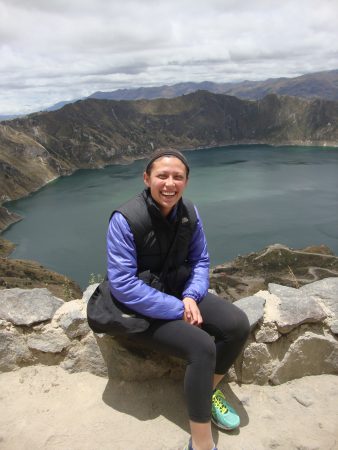Hello everyone! My name is AJ and I’m a senior here at Pitzer. During the fall of my junior year, I had the opportunity to study abroad in Ecuador on one of Pitzer’s direct-run study abroad programs! My semester was incredible, and I’m here to give you a little insight into what studying abroad at Pitzer is all about. 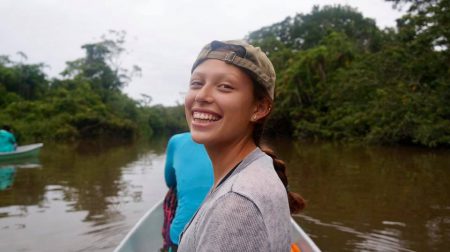
Pitzer has an impressive study abroad program. Over 50% of the student body enrolls in a direct or exchange study abroad program once in their four years. To give you a point of reference, the national average for college students studying abroad is 2% (WOAH!). Pitzer offers a range of programs, domestic and international, as well as counseling and guidance through the Office of Study Abroad and International Programs in order to find the program that best suits you. With 8 Pitzer programs (programs founded and directed by Pitzer staff and mindful of Pitzer’s core values) in Costa Rica, Vietnam, Brazil, Nepal, Ecuador, Botswana, and Italy, plus 50+ direct enroll and exchange programs, Pitzer really makes the world your oyster.
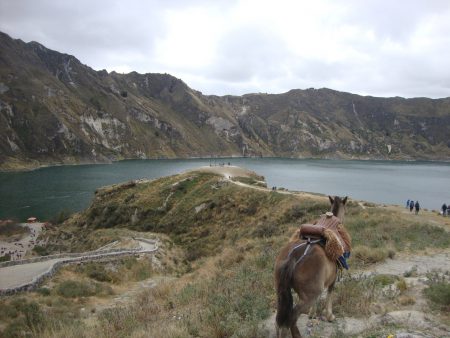
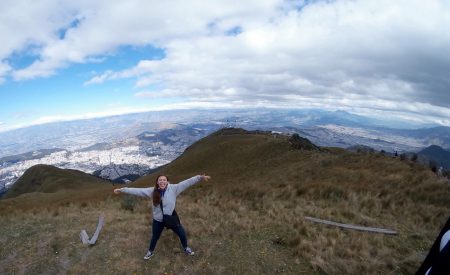
Last fall, I had the pleasure of studying abroad in Ecuador. The 5 months I spent in Quito and around the rest of the country were life-changing! From the day I arrived to the day I left, I felt incredibly supported by Pitzer staff who ensured that my stay was smooth and comfortable. There are bumps in every journey, but that being said, my abroad experience was incredibly positive.
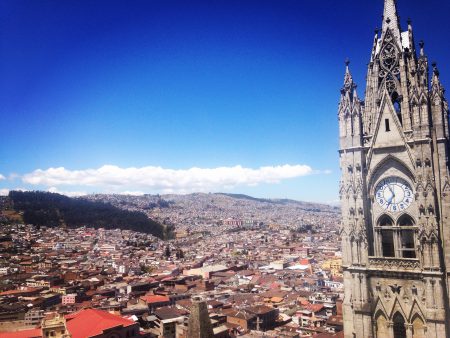
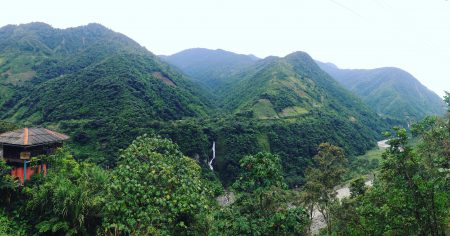
What I enjoyed most about my stay in Ecuador was the fact that I was able to develop a routine there. What sets apart studying abroad from simply travelling to a country is that you are given the chance to create your own life in the country of stay. Everyday I would wake up at 8am and have a nice breakfast at my home stay. From there, I would take a leisurely 15 minute walk to the bus terminal, Rio Coca, and catch my 30-minute bus ride to school.
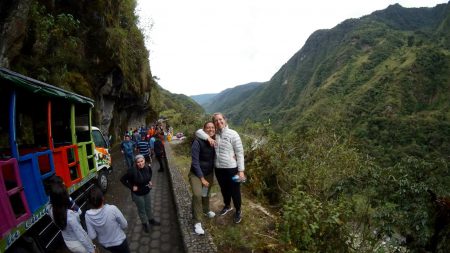
The school I attended, Universidad de San Francisco Quito (USFQ), is located in the valley of Quito called Cumbaya. The bus ride to school was windy but soothing, and it cost me a total of 25 cents. I could always expect to see the same vendors hop on the bus during my ride. One guy stood out in particular: he sold dried lima beans along with a catchy “habas, habas, habitas, habas, ricas habas” tune. On Mondays and Fridays I had class at 10am, a course titled “The Political Economy of Inequality”. My professor was a pretty well-known economist in Ecuador; he was incredibly passionate about economic inequality in Ecuador as well as the repercussions on social and political dynamics in the country. My other class was a three-hour long painting class on Wednesday nights. I had never painted before, and this class actually proved to be more difficult than my economics course! Still, the diversity of classes I was able to take was awesome. USFQ is a private university and has a strong focus on providing a version of a liberal arts education. The connection between students and professors is strong, which reminded me a lot of my experience at Pitzer.
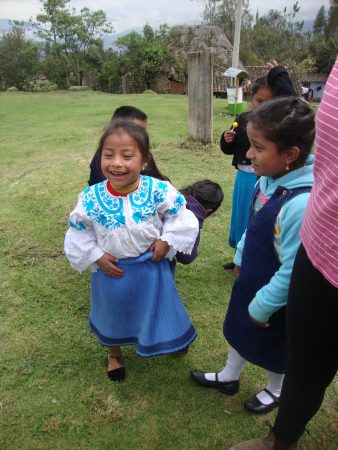 On top of the classes I took at USFQ, I attended a Pitzer seminar on Tuesday afternoons where we discussed topics regarding Ecuadorian culture. This included everything from politics, to economics, environmental issues, gender, and poverty. Although led by the program leaders, Sebastian and Viviana (amazing angels!!!), the seminar also included a number of guest speakers. This class particularly helped guide our independent research projects, a final report culminating research on an area of interest that we presented at the end of the semester. My project focused on the current economic downturn in Ecuador as a cause of a crash in the price of petroleum and excessive government spending over the past decade. My academics really allowed me to understand the social and political background of the country I was living in, and my classes gave me awareness of customs that are essential to understanding the Ecuadorian population.
On top of the classes I took at USFQ, I attended a Pitzer seminar on Tuesday afternoons where we discussed topics regarding Ecuadorian culture. This included everything from politics, to economics, environmental issues, gender, and poverty. Although led by the program leaders, Sebastian and Viviana (amazing angels!!!), the seminar also included a number of guest speakers. This class particularly helped guide our independent research projects, a final report culminating research on an area of interest that we presented at the end of the semester. My project focused on the current economic downturn in Ecuador as a cause of a crash in the price of petroleum and excessive government spending over the past decade. My academics really allowed me to understand the social and political background of the country I was living in, and my classes gave me awareness of customs that are essential to understanding the Ecuadorian population.
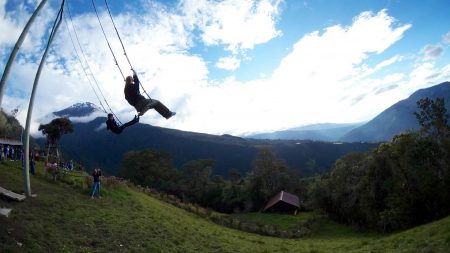
My program also had a huge emphasis on cultural immersion. While the curriculum, host families, and community service requirements (6 hours a week at a non-profit ~ really cool options available!) set up by Pitzer help you engage with the language and culture, the level of immersion that you commit yourself to in your free time is really up to you! Being at the university allowed me to make lots of Ecuadorian friends, and throughout the semester, I was able to meet their families, share experiences, and travel with several of them. It’s crazy how close you can get to people in the span of just one semester. I still talk to my Ecuadorian friends daily, and they were one of the reasons why leaving Ecuador was so hard.
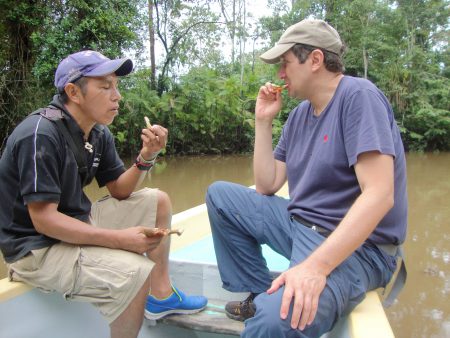
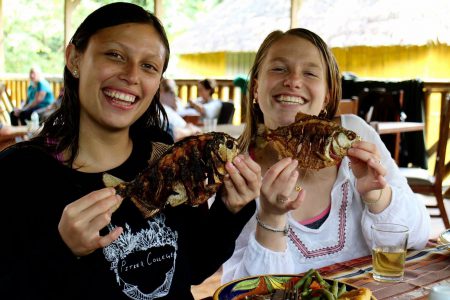
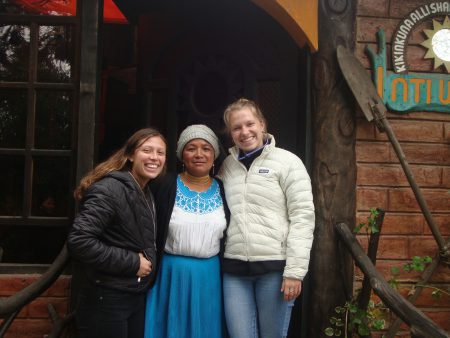
Overall, the program provided me with a well-rounded experience that helped me learn a lot about myself in a worldly context. I would 100% recommend going abroad during your time at Pitzer!
Posted by AJ Leon ’18
